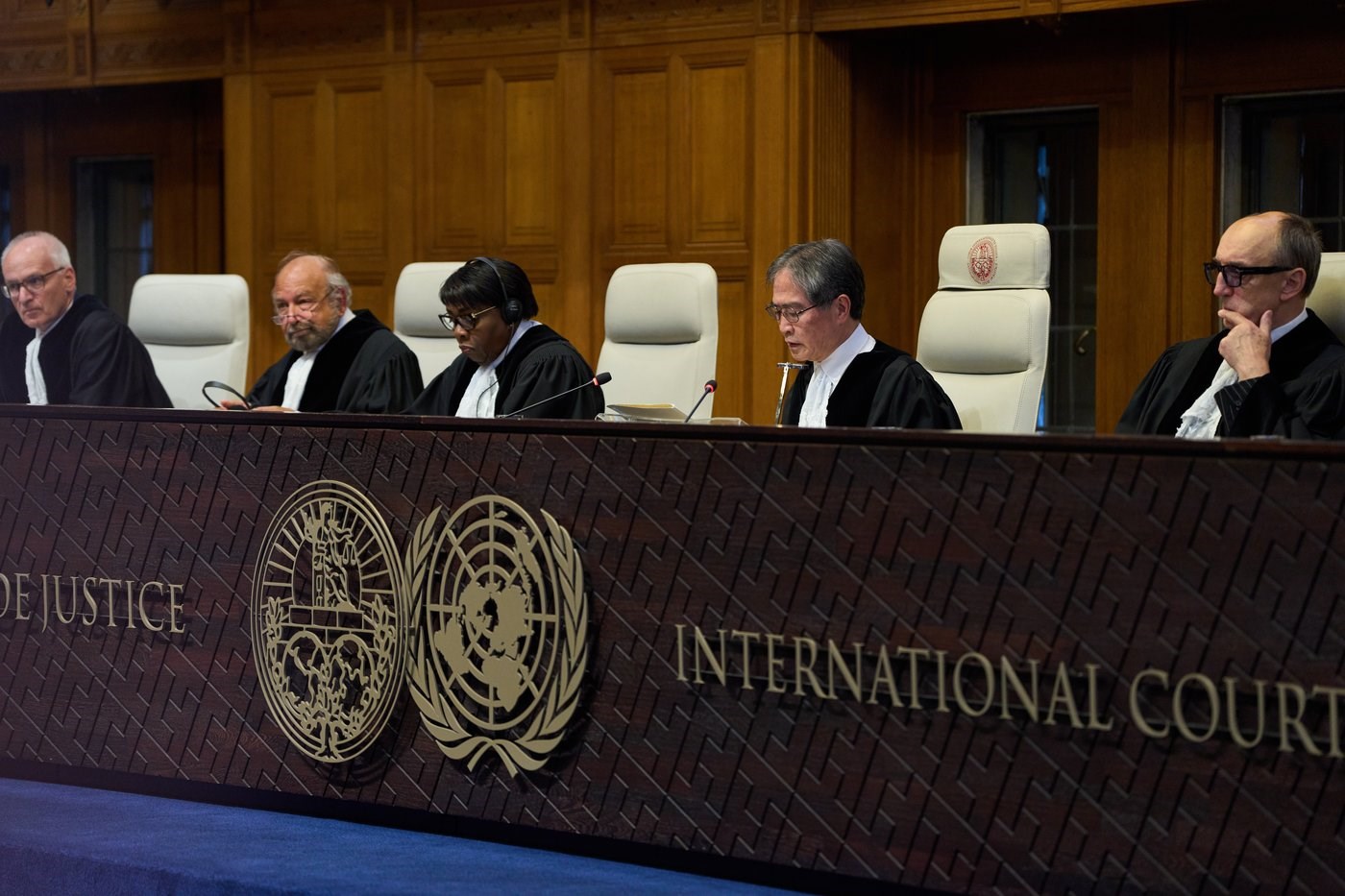
Presiding Judge Yuji Iwasawa, second right, starts reading the advisory opinion of the International Court of Justice on what Israel must do to ensure humanitarian aid reaches Palestinians in Gaza and the occupied West Bank, in The Hague, Netherlands, Wednesday, Oct. 22, 2025. (AP Photo/Peter Dejong)
Republished October 22, 2025 - 8:03 AM
Original Publication Date October 21, 2025 - 10:11 PM
THE HAGUE, Netherlands (AP) — The International Court of Justice said on Wednesday that Israel must allow the U.N. aid agency in Gaza, known as UNRWA, to provide humanitarian assistance to the Palestinian territory.
The Hague-based court was asked last year by the U.N. General Assembly to determine Israel’s legal obligations after the country effectively banned the agency, the main provider of aid to Gaza, from operating there.
Israel “is under the obligation to agree to and facilitate relief schemes provided by the United Nations and its entities, including UNRWA,” ICJ President Yuji Iwasawa said.
Ceasefire to consider
The advisory opinion from the World Court comes as a fragile U.S.-brokered Gaza ceasefire agreement, which took effect on Oct. 10, continues to hold.
Israel has denied it has violated international law, saying the court's proceedings are biased, and the country didn't attend hearings in April. However, Israel provided a 38-page written submission for the court to consider.
UNRWA ban
The U.N. aid agency in Gaza has been effectively banned from the territory since January. UNRWA has faced criticism from Israeli Prime Minister Benjamin Netanyahu and his far-right allies, who say the group is deeply infiltrated by Hamas.
UNRWA rejects that claim, and the ICJ found that Israel hadn't “substantiated the allegations,” Iwasawa said.
The court also held that the population of the Gaza Strip had been “inadequately supplied,” and that Israel was required to ensure “the basic needs of the local population” are met.
During the hearings in April, Palestinian Ambassador to the Netherlands Ammar Hijazi told the court that Israel was “starving, killing and displacing Palestinians while also targeting and blocking humanitarian organizations trying to save their lives.”
In its written submission, Israel argued that the court should reject the request from the U.N. General Assembly, because it was too similar to other advisory opinions and the judges lacked the fact-finding abilities to make a determination.
Advisory opinion
In an advisory opinion last year, the court said that Israel’s presence in the occupied Palestinian territories is unlawful and called on it to end, and for settlement construction to stop immediately. That ruling fueled moves for unilateral recognition of a Palestinian state.
Israel condemned the decision, saying it failed to address the country’s security concerns.
Two decades ago, the court ruled that Israel’s West Bank separation barrier was “contrary to international law.” Israel boycotted those proceedings, saying they were politically motivated.
Advisory opinions carry significant legal weight, but are described as “nonbinding” as there are no direct penalties attached to ignoring them.
Wednesday opinion is separate from the ongoing proceedings initiated by South Africa, accusing Israel of committing genocide in Gaza. Israel rejects South Africa’s claim and accuses it of providing political cover for Hamas.
Arrest warrant for Netanyahu
Last year, another Hague-based tribunal, the International Criminal Court, issued arrest warrants for Netanyahu and his former defense minister, Yoav Gallant, alleging that the pair have used “starvation as a method of warfare” by restricting humanitarian aid and have intentionally targeted civilians — charges that Israeli officials strongly deny.
The advisory opinion from the ICJ noted that Israel “is not to use starvation of the civilian population as a method of warfare."
The war in Gaza was triggered by Hamas’ surprise attack on southern Israel on Oct. 7, 2023, which left 1,200 people, mostly civilians, dead and 250 taken hostage. Israel’s retaliatory offensive in the Palestinian territory has killed more than 68,000 people, according to Gaza’s Health Ministry.
The ministry’s figures, which don't distinguish between civilians and combatants, are seen as the most reliable by U.N. agencies and independent experts. Israel has disputed them without providing its own toll.
News from © The Associated Press, 2025